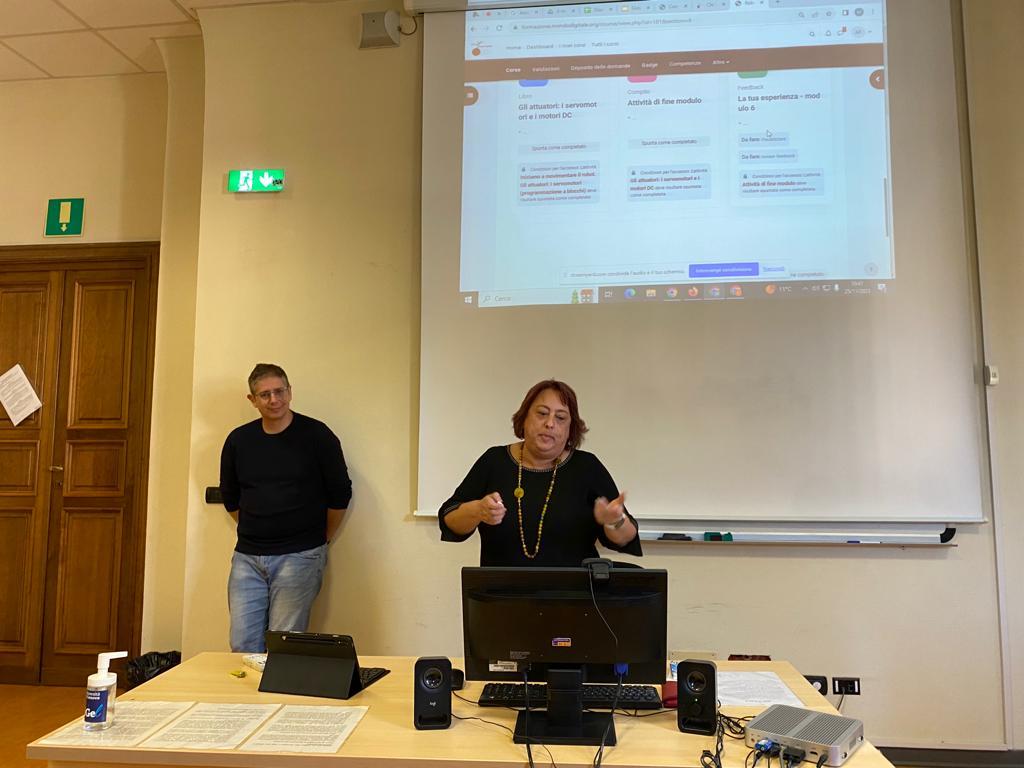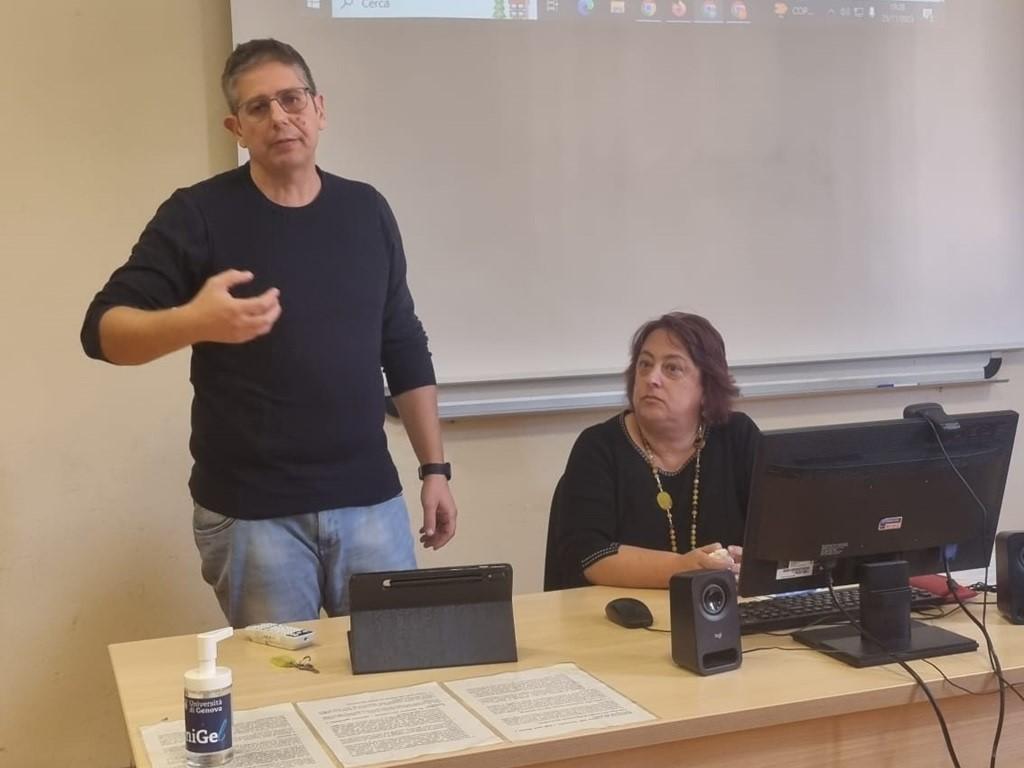An advanced training course for Gabriella Gallo and Daniele Bucci.
“Computational thinking is reformulating a seemingly difficult problem into one we know how to solve, perhaps by reduction, embedding, transformation, or simulation.” (J.M. Wing).
We are happy to report on the advanced training course attended by Gabriella Gallo and Daniele Bucci, ending the On-line First-level EPICT University Specialisation Course (European Pedagogical ICT Licence) that they attended at the University of Genoa, which also included a 250-hour traineeship at the Fondazione Mondo Digitale.
The Specialisation Course was held by the Department of Educational Sciences of the University of Genoa (DISFOR), in collaboration with the Department of Informatics, Bioengineering, Robotics and Systems Engineering at the University of Genoa (DIBRIS). Furthermore, activities are also organised by EPICT Italia, an association of teachers and trainers who have obtained the EPICT certification over time and work in their own schools and on research projects to promote the value and pedagogical use of digital technologies.
Gabriella is a teacher of Technology and Design of Electronic Systems at IIS Rosatelli in Rieti, while Daniele, a lower secondary school teacher, is employed by the Lazio Region local training team.
Gabriella and Daniele collaborated to design and create a MOOC on educational robotics which was also the subject of their thesis.
According to Mich Resnick, students can be divided into "stagehands" and "screenwriters." The former are fascinated by machines and the operation of technical devices, while the latter are interested in social interactions. The course created by Gabriella and Daniele, which includes introductory activities to coding, experiences with simulators, and sensors, is suitable for all types of students and can be developed according to the Soap Method on different learning styles. It can be used by teachers at different levels and for all subjects, both humanities and technical. The authors believe that collaboration between the technical and humanistic fields drives excellence.





